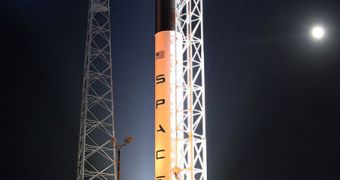With the retirement of the aging shuttle fleet inevitably scheduled for September 2010, scientists around the world, seeking to conduct experiments in orbit, will receive a heavy blow. Though unsafe according to recent standards, Endeavor, Discovery and Atlantis had a massive cargo bay, that could fly large numbers of scientific experiments to the low-Earth orbit. Once they are gone, it would be up to private space companies to take care of this business, but the faith of scientific presence in space has yet to be decided, Nature News reports.
The Obama Administration has proposed awarding $6 billion over five years to private companies, via various NASA grants, for the development of alternatives to the shuttles. But the emphasis is placed on getting US astronauts to orbit, not on carrying scientific experiments to space. But with the decision to sack Project Constellation come some new possibilities as well. The private industry, including companies such as SpaceX, Virgin Galactic, Orbital Science Corporation and Bigelow Aerospace, is keen on developing all types of spacecraft, ranging from suborbital airplanes to space capsules able to reach the International Space Station.
Under the new budget proposal, the ISS will be maintained by 2020, but there are currently no significant replacements lined up to substitute the shuttles and their capabilities. Scientists will therefore need to focus on the private sector, under the sole condition that they can afford the price tag associated with securing liftoff space on such a spacecraft. Universities and other research institutes will need to compete with private space fliers, which have enough money to buy a ticket to orbit for themselves.
“Tourists will typically fly once or twice – they're going to buy tickets in small numbers. But when governments or industry buy tickets they will buy them by the dozens or hundreds. The prices are now down in the range of single-investigator grants,” Bigelow Aerospace Director of Operations Mike Gold says. Additionally, the company plans to construct commercial space stations that could also provide scientists with a place to install their experiments. “You can't do good science when you're focusing on keeping the ISS from falling out of the sky,” Gold adds.

 14 DAY TRIAL //
14 DAY TRIAL //